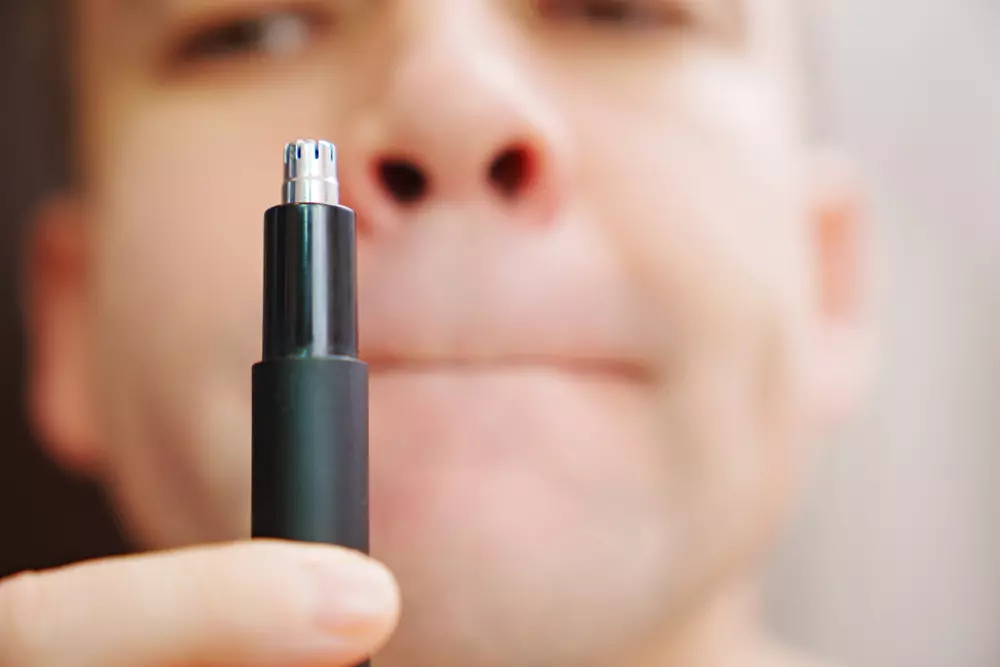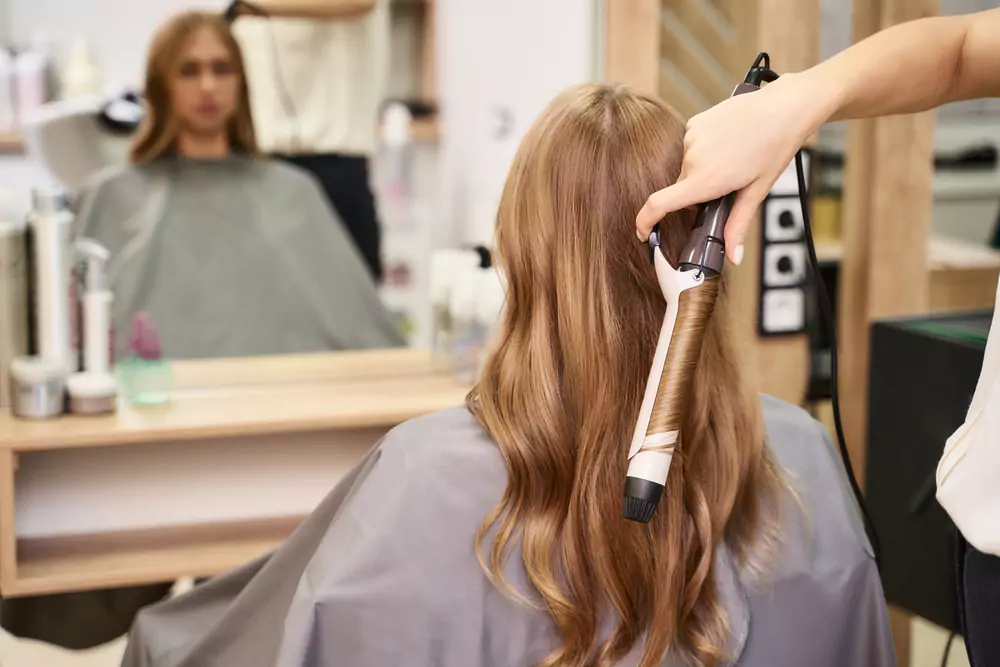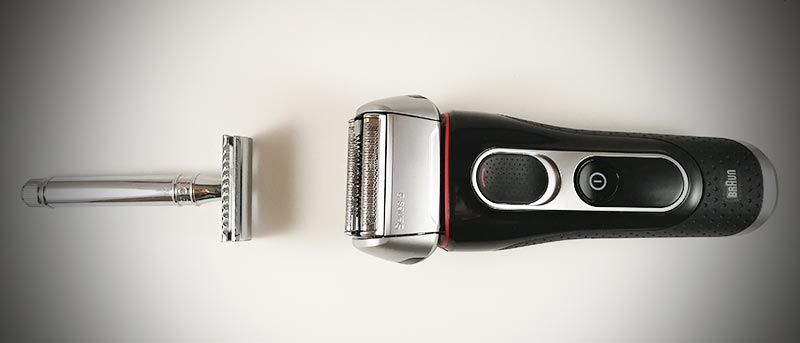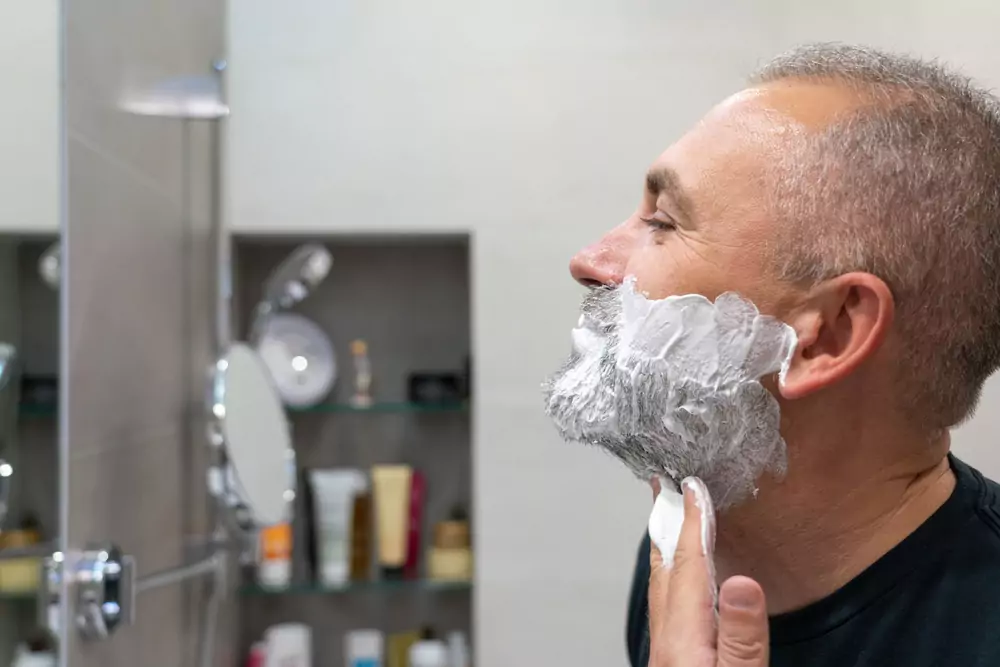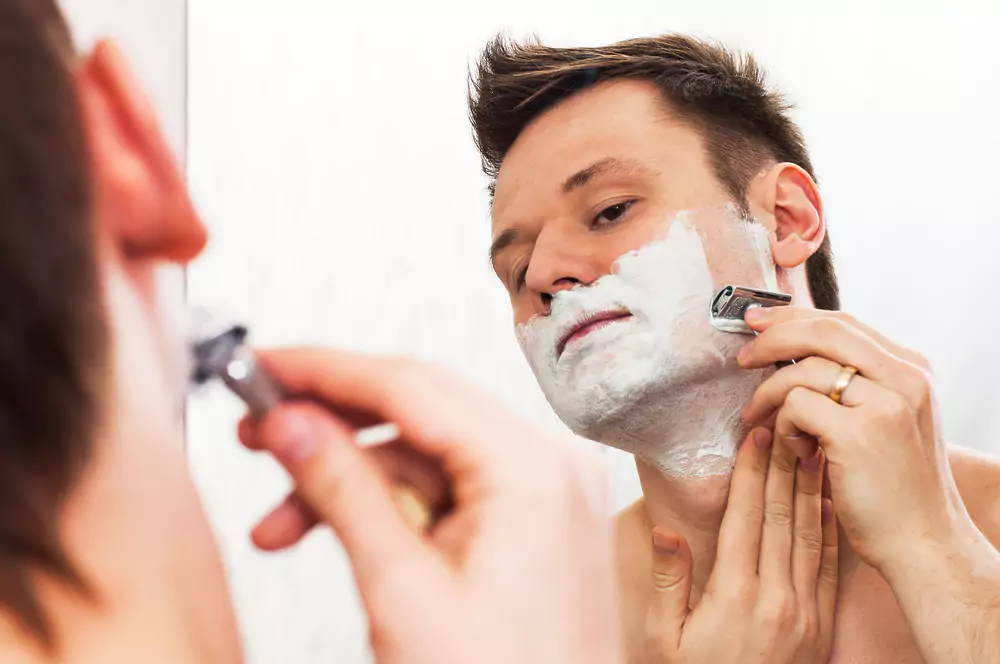Do Nose Hair Trimmers Hurt? When it comes to personal grooming, nose hair is often an area that requires attention. While some individuals may choose to pluck their nose hairs manually, many opt for the convenience and efficiency of nose hair trimmers.
However, a common concern among those considering the use of these devices is whether or not they cause pain. In this article, we will delve into the world of nose hair trimmers to determine if they hurt and explore ways to minimize any potential discomfort.
Understanding Nose Hair Trimmers
Nose hair trimmers are specialized grooming tools designed to remove excess hair from the nostrils safely and effectively. They typically feature a small, angled cutting head that can easily navigate the contours of the nasal cavity. These devices may be manual or electric, with electric trimmers offering additional features such as built-in lights or vacuum systems to collect trimmed hairs.
The Mechanism Behind Nose Hair Trimming
To understand whether nose hair trimmers hurt, it’s essential to comprehend how they work. Nose hair trimmers utilize blades or rotary cutting systems to trim the hairs at the base without pulling them out entirely. Unlike plucking, which can be painful due to hair follicle removal, trimming only trims the visible portion of the hair without affecting its root.
Among all the options in the market, the Daling DL 7019 Nose Trimmer is a popular choice among customers who are looking for an effective and efficient way to groom their facial hair. This nose trimmer has garnered numerous accolades and positive reviews due to its exceptional performance, user-friendly design, and long-lasting battery life.
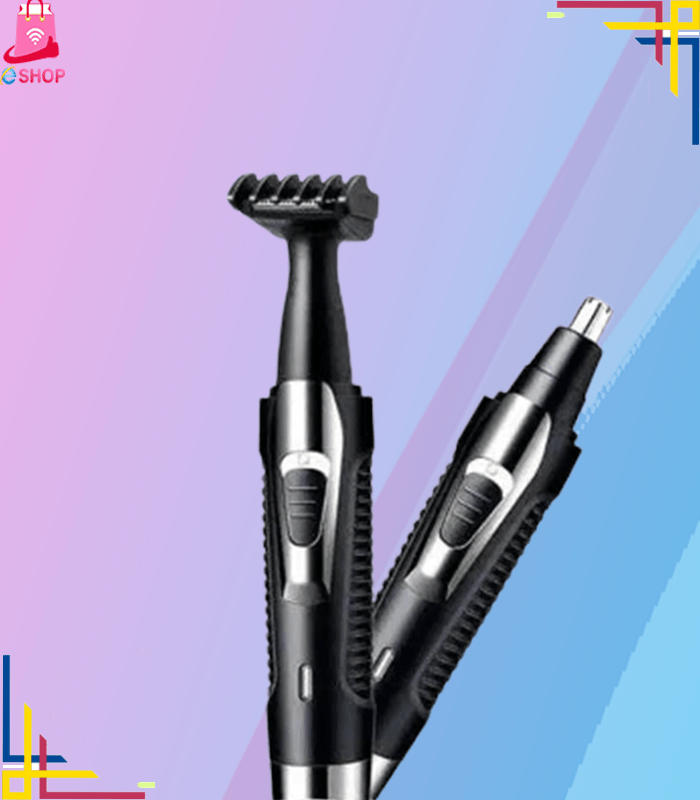

Do Nose Hair Trimmers Hurt?
The level of discomfort experienced while using a nose hair trimmer can vary from person to person. Some individuals may find the sensation slightly uncomfortable, while others may hardly notice it at all. However, in general, using a nose hair trimmer should not be painful if done correctly.
Tips For Minimizing Discomfort
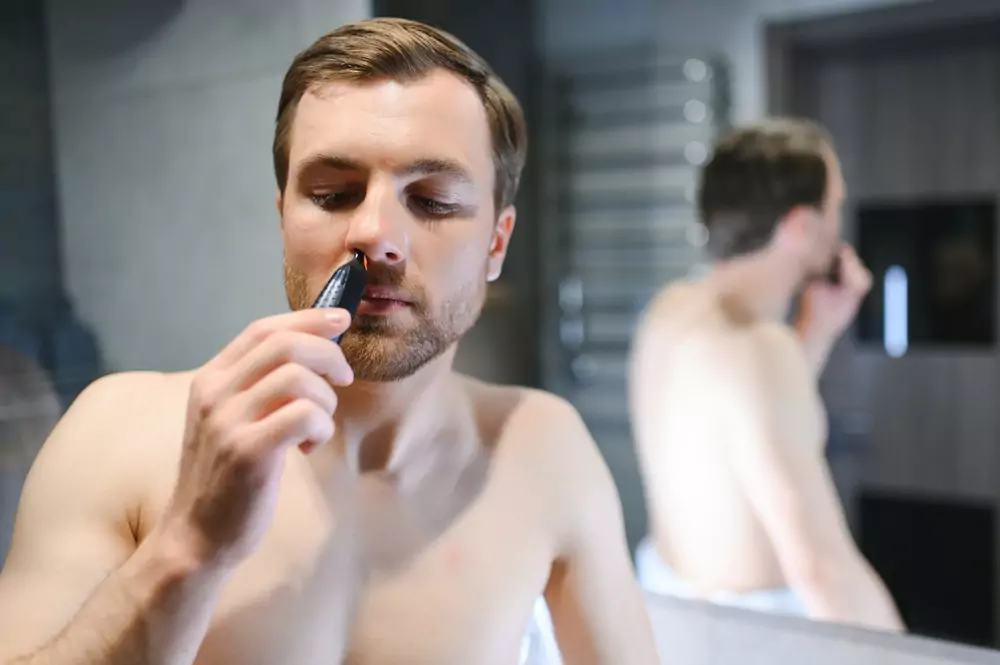

Now that you know whether nose trimmers hurt or not, it’s essential to follow some tips to minimize discomfort during the process. Here are some steps to ensure a more comfortable experience:
Choose the right nose trimmer
Opt for a high-quality nose trimmer with sharp blades that can effectively trim hairs without causing irritation. Make sure the trimmer is designed for nose hair removal and has a comfortable grip.
Clean the nose trimmer
Before use, clean the nose trimmer to remove any debris or residue that could potentially cause irritation.
Wash your face
Gently clean your face and the area around your nose to remove dirt and oils. This will help reduce the risk of irritation during the trimming process.
Soften the hair
Use a warm, damp cloth to soften the hair around your nostrils. This will make it easier to trim the hairs without causing discomfort.
Apply a numbing cream
If you’re particularly sensitive to discomfort, you may want to apply a numbing cream to the area 30 minutes before trimming. This can help reduce any pain or stinging sensations.
Trim slowly and carefully
Take your time while trimming the hairs around your nostrils. Be gentle and avoid pressing too hard against the skin.
Rinse the area
After trimming, rinse the area with cold water to help close the pores and reduce any redness or irritation.
Apply a soothing after-care product
Apply a gentle after-care product, such as aloe vera or witch hazel, to the area to help soothe any discomfort and reduce redness.
Avoid excessive trimming
Try not to trim your nose hairs too short, as this can cause irritation and discomfort.
Regular maintenance
To minimize discomfort, maintain a regular trimming schedule. This will help prevent the hairs from growing too long and becoming more difficult to remove.
Potential Risks And Side Effects
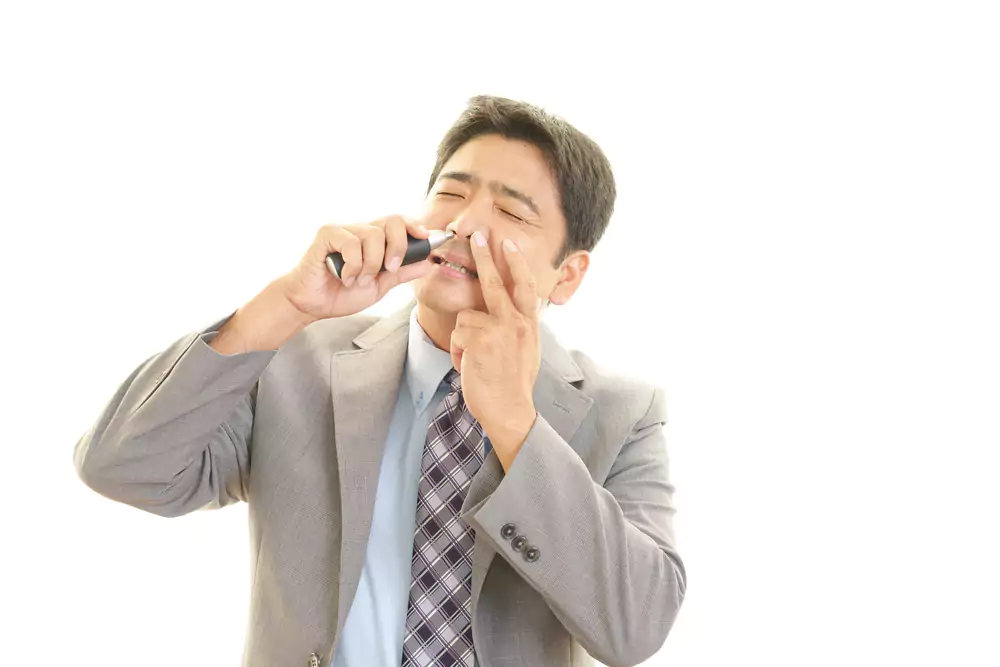

In the above mentioned details, I have shared some tips through which you can minimize the discomfort while trimming. Still, here are some negative aspects of nose trimming you need to know if you are new to this. Here are some of the drawbacks:
Infection
One of the main risks of nose trimming is the possibility of introducing bacteria into the nasal passages, leading to infection. The nose contains natural defenses, such as nasal hair and mucus, which help filter out harmful particles and prevent infections. Removing these hairs can disrupt this natural defense mechanism and increase the risk of infection.
Irritation and Inflammation
Trimming nose hair can cause irritation and inflammation of the nasal lining. This can result in discomfort, redness, swelling, and even pain. The delicate tissues inside the nose may become more sensitive after hair removal, making them prone to irritation from environmental factors like dust or allergens.
Ingrown Hairs
When nose hair is trimmed too short or pulled out, there is a possibility of developing ingrown hairs. Ingrown hairs occur when the hair grows back into the skin instead of outward. This can lead to redness, tenderness, and even infection if left untreated.
Bleeding
The nasal passages have a rich blood supply, and accidental cuts or nicks during nose trimming can cause bleeding. The blood vessels in the nose are fragile, so even minor injuries can result in significant bleeding. It is important to be cautious while trimming nose hair to avoid any injury to the delicate tissues.
Nasal Dryness
Removing nasal hair can disrupt the balance of moisture inside the nose, leading to dryness. This can cause discomfort, itching, and increased susceptibility to nasal infections. Maintaining proper hydration and using saline nasal sprays may help alleviate this side effect.
Nasal Hair Regrowth
After trimming nose hair, it will eventually grow back. However, the regrowth may not be uniform or as effective in filtering out particles as the original hair. This can potentially increase the risk of dust, allergens, and other irritants entering the respiratory system.
Alternatives To Nose Hair Trimming
While nose hair trimming is a common practice to maintain personal hygiene and appearance, there are alternative methods that can be used to achieve similar results. Here are five alternatives to nose hair trimming:
Nasal Irrigation
Nasal irrigation, also known as nasal cleansing or sinus rinse, involves flushing the nasal passages with a saline solution to remove dirt, debris, and excess mucus. This method can be particularly helpful for those who suffer from allergies, colds, or sinus infections. It is important to use a gentle technique and sterile water to avoid irritation or injury to the nasal tissues.
Nasal Hair Growth Inhibitors
Products containing ingredients like retin-A, tretinoin, or glycolic acid can be applied topically to the nostrils to slow down hair growth. These products work by exfoliating the skin and unclogging hair follicles, which may reduce the need for regular trimming. It is essential to follow the product’s instructions and consult with a healthcare professional before using such products.
Natural Remedies
Some natural remedies, such as using tea tree oil or aloe vera, can help to soothe and clean the nasal passages. Tea tree oil has antimicrobial properties that can help to kill bacteria, while aloe vera is known for its soothing and anti-inflammatory effects. However, it is important to note that these remedies may not be as effective as other methods in removing excess hair.
Threading
Nose hair threading is an ancient technique that involves using a thin, cotton thread to remove hair from the nostrils. This method is usually performed by a professional and can be less painful than trimming, as the hair is removed from the follicle. Threading can also be more precise, as it allows for the removal of shorter hairs that may not be trimmed by a device.
Waxing
Waxing is another hair removal technique that involves applying warm wax to the nostrils and then quickly removing it, taking the hair with it. This method can be done at home or by a professional and is generally less painful than trimming. However, waxing can cause irritation and redness, especially for those with sensitive skin.
Conclusion
In conclusion, using nose hair trimmers can be an uncomfortable experience for some individuals, but it is generally not painful. The key to minimizing discomfort lies in choosing the right trimmer, preparing the nostril properly, and being gentle during the trimming process. It is essential to select a high-quality trimmer with a comfortable grip, adjustable settings, and sharp blades.
Additionally, it is crucial to clean the trimmer and your nostrils before use and to ensure the trimmer is properly lubricated with saline solution. By following these guidelines, you can safely and effectively use a nose hair trimmer without experiencing significant pain or discomfort.
For more details, head to Online Shop Sell as they have numerous solutions that you can easily consider.
FAQs
Does Nose Hair Trimming Hurt?
Nose hair trimming may cause some discomfort or mild pain for some individuals, but it is generally not considered to be a painful process. The sensation can vary depending on the person’s sensitivity and the specific trimming device used.
Is It Painful To Use Nose Trimmer?
Using a nose trimmer can cause mild discomfort for some individuals, but it is not typically painful. Most people find the process relatively painless, especially when using a high-quality trimmer designed specifically for nose hair.
What Is The Least Painful Way To Trim Nose Hair?
The least painful way to trim nose hair is by using a quality nose hair trimmer with a gentle design and sharp blades. These trimmers are specifically designed to minimize pain and discomfort while effectively trimming unwanted hairs.
How Painful Is Nose Hair Removal?
Nose hair removal can be mildly uncomfortable for some individuals, but it is generally not considered to be a painful process. Most people find that using a quality nose hair trimmer or tweezers helps to minimize any discomfort associated with the procedure.

